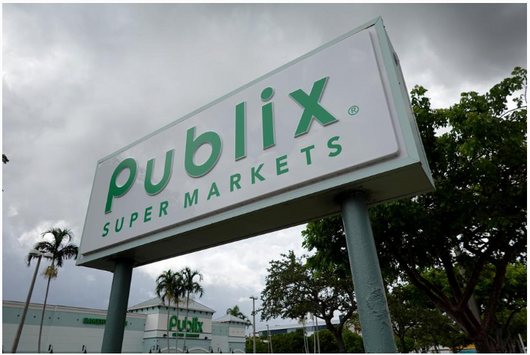

The recent Publix controversy has reignited conversations about corporate values, accountability, and diversity in America. The grocery chain came under fire after allegedly backing out of sponsoring the Black Book Bash in Jacksonville, Florida. While Publix denied ever agreeing to sponsor the event, the organizer shared email receipts indicating otherwise. In one exchange, a representative reportedly cited the “volatile climate” as the reason for pulling support.
This situation has sparked boycotts and raised an important question: what should corporations learn from Publix’s misstep? In a time when consumers are increasingly values-driven, neutrality is no longer an option. The Publix controversy serves as a case study in how corporate America must navigate public trust and social responsibility in 2025.
Today’s consumers are more discerning than ever. With inflation, economic uncertainty, and social division on the rise, buyers want to support brands that align with their beliefs. We’ve seen this before: when Target scaled back its DEI (Diversity, Equity, and Inclusion) initiatives, public backlash led to profit losses. In contrast, Costco—a company that has remained steadfast in its pro-equity stance—has reported rising profits and stronger brand loyalty.
The takeaway? Consumers reward courage and authenticity. When companies stand firm on values of equity and fairness, they don’t just protect their reputation—they strengthen customer trust and employee engagement.
There’s no such thing as neutrality in the face of inequality. Choosing not to engage in conversations about fairness and inclusion is, in itself, a decision—with real-world consequences. The Publix controversy underscores how backtracking on commitments can erode credibility.
As a privately owned, employee-run company, Publix has far greater freedom to take a stand than many public corporations. Yet, failing to use that autonomy responsibly sends a message that the company prioritizes comfort over conviction. In 2025, silence speaks volumes—and often louder than words.
History continues to show that boycotts and consumer activism are powerful levers for change. From the Civil Rights era to modern corporate accountability campaigns, public pressure can move even the biggest institutions. The Publix controversy is just the latest reminder that customers and employees have collective power—to reward integrity or reject hypocrisy.
Corporate America must remember: doing the right thing isn’t just moral; it’s strategic. Aligning business decisions with equity, transparency, and empathy builds resilience. The lesson is simple but urgent—companies that abandon their values risk losing both trust and profit.
𝗦𝗲𝗺𝗮𝘀𝗼𝗰𝗶𝗮𝗹 𝗶𝘀 𝘄𝗵𝗲𝗿𝗲 𝗿𝗲𝗮𝗹 𝗽𝗲𝗼𝗽𝗹𝗲 𝗰𝗼𝗻𝗻𝗲𝗰𝘁, 𝗴𝗿𝗼𝘄, 𝗮𝗻𝗱 𝗯𝗲𝗹𝗼𝗻𝗴. We’re more than just a social platform — from jobs and blogs to events and daily chats, we bring people and ideas together in one simple, meaningful space.
Comments